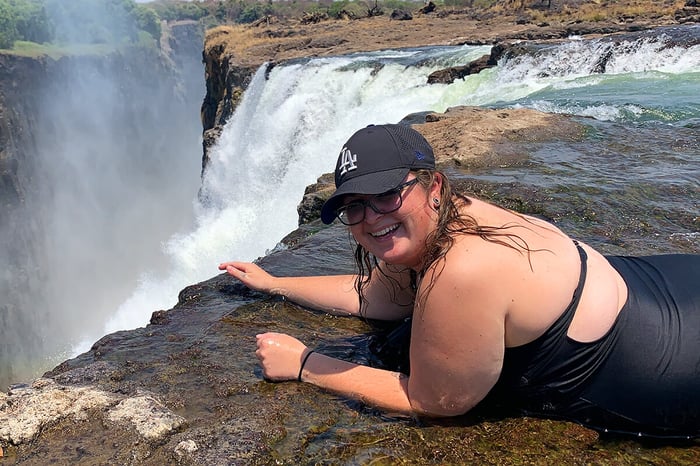One of the best parts about being a nurse is the endless possibilities of what jobs are available and where you can do them. Unlike other healthcare professionals, nurses don’t have to choose a specialty as part of their education. Nurses can specialize and re-specialize until they settle into their dream job.
Why Become A Nurse Practitioner
If you’re already a nurse, becoming a nurse practitioner may or may not feel like a natural next step once you become comfortable with your nursing specialty. But whether you’re a nurse or a nursing student aspiring to be a nurse, how can you know if becoming a nurse practitioner is a viable long-term goal for you?
Nurse practitioners (NPs) are often compared to physician’s assistants (PAs) because they are both considered “mid-level providers” and have similar levels of education. For those that are already nurses or are set on going to nursing school, becoming an NP is probably the path of least resistance when compared to a PA.
If you’re not yet in nursing school, you may want to speak with a nurse practitioner and a physician’s assistant to see which one appeals most to you. Becoming a PA would involve a different educational path. NPs use the nursing model when caring for patients, which is a thought process of treating a patient with a disease. PAs use the medical model when caring for patients, which is like treating a disease that a patient has. These models have similarities but involve different training styles. NPs are also considered independent providers, which means that they don’t always require the oversight of a physician, whereas physician assistants generally do.
Diana Jacket

$44.99
DESCRIPTION The Diana Jacket is the PERFECT lightweight layer that gets you to work on a chilly morning and adds the just-what-you-need warmth at 2am. Smooth and clean front lines with Princess seams curve with you in all the right… read more
How To Become A Nurse Practitioner
To become a nurse practitioner, the general course is to:
-
Graduate high school or the equivalent
-
Go to nursing school and get a nursing degree
-
Pass the board exam (NCLEX-RN or NCLEX-PN) to become an RN or LPN
-
Gain experience as a nurse (typically at least 2 years)
-
Get a master’s nursing degree in your specialty area
-
Complete a preceptorship in your specialty area
-
Pass the nurse practitioner board exam (AANP or ANCC)
The above steps will vary depending on your situation. Many nurse practitioners don’t follow a traditional path, and some start with college degrees outside the field of nursing altogether. This is just a general guide.
There are many types of nurse practitioners that work in inpatient nursing, outpatient nursing, and other settings.
Types of Nurse Practitioners
-
Nurse anesthetist
-
Family nurse practitioner
-
Women’s health practitioner
-
Certified nurse midwife
-
Neonatal nurse practitioner
-
Pediatric nurse practitioner
-
Psychiatric mental health nurse practitioner
-
Adult-gerontology acute care nurse practitioner
-
Adult-gerontology primary care practitioner
-
Emergency nurse practitioner
-
Aesthetic nurse practitioner
-
Cardiology nurse practitioner
-
Dermatology nurse practitioner
-
Oncology nurse practitioner
-
And more!
Pros and Cons
Becoming a nurse practitioner isn’t an easy decision, and there are many pros and cons to weigh out.
Additional Autonomy
Depending on your personality, this could be a pro or a con. Some bedside nurses are confident and seamless in their nursing judgment, where the extra autotomy as a nurse practitioner is natural. Other nurses are more cautious and collaborative, and having the burden of medical decision-making on them feel more uncomfortable.
With additional time and training, autotomy is something that you can get used to, but that doesn’t mean that it’s ideal for everyone.
Schedule Changes
Working as a bedside nurse, you are most likely paid on an hourly basis, which also means you receive overtime. Many nurse practitioners are paid a salary, which means they receive the same base pay no matter how many hours they work. The pro: if you finish your work in less time, you can get the same pay for less hours. The con: if you end up needing to work overtime, you don’t get additional pay.
Many nurse practitioners end up with an on-call schedule, which is also an adjustment. This requires having a work phone/pager on your person, or even sleeping at the hospital depending on your specialty.
Salary Updates
In general, becoming a nurse practitioner means you’ll receive a salary increase. But, if you had a lucrative bedside nursing job, it might not mean much more pay. The average nurse practitioner's salary is around 100k, with higher-paying jobs in the 150k to 200k range.
Some NPs have large patient panels and end up working overtime consistently, where their hourly rate ends up being the same or less than they made while working bedside. These are all factors to consider.
New Workflows
Nurse practitioners work differently than bedside nurses. You’ll likely have more patients, but be in charge of the medical decision-making and/or managing complex procedures for these patients (assisting with surgeries, administering complicated injections, placement of advanced lines or tubes, etc.). This is different than the typical nursing workflow of having a handful of patients and overseeing all of their nursing care.
Initial Investment
Becoming a nurse practitioner involves some investment upfront. It will require payment for education and board exams. It also requires time invested into studying and pursuing an advanced degree. On top of that, you’ll likely end up needing to find your own preceptor for your clinical hours. Some preceptors require payment to oversee your practicum, and you’ll also need time and transportation to partake in these additional clinical hours.
How Will You Level Up?
Becoming a nurse practitioner involves discipline, commitment, and willingness to change the way you practice nursing. If this sounds like something you’re interested in, talk to a nurse practitioner and research what a day in the life of an NP is like .
There are many ways to level up as a nurse. It might mean becoming a nurse practitioner, getting a certification, pivoting specialties, or just being the best nurse you can possibly be. No matter what your nursing journey is, Moxie Scrubs is here to take care of you with buttery soft scrubs perfect for your next level.
References:
https://www.nursingprocess.org/types-of-nurse-practitioner-specialties.html
https://www.salary.com/research/salary/benchmark/nurse-practitioner-salary





